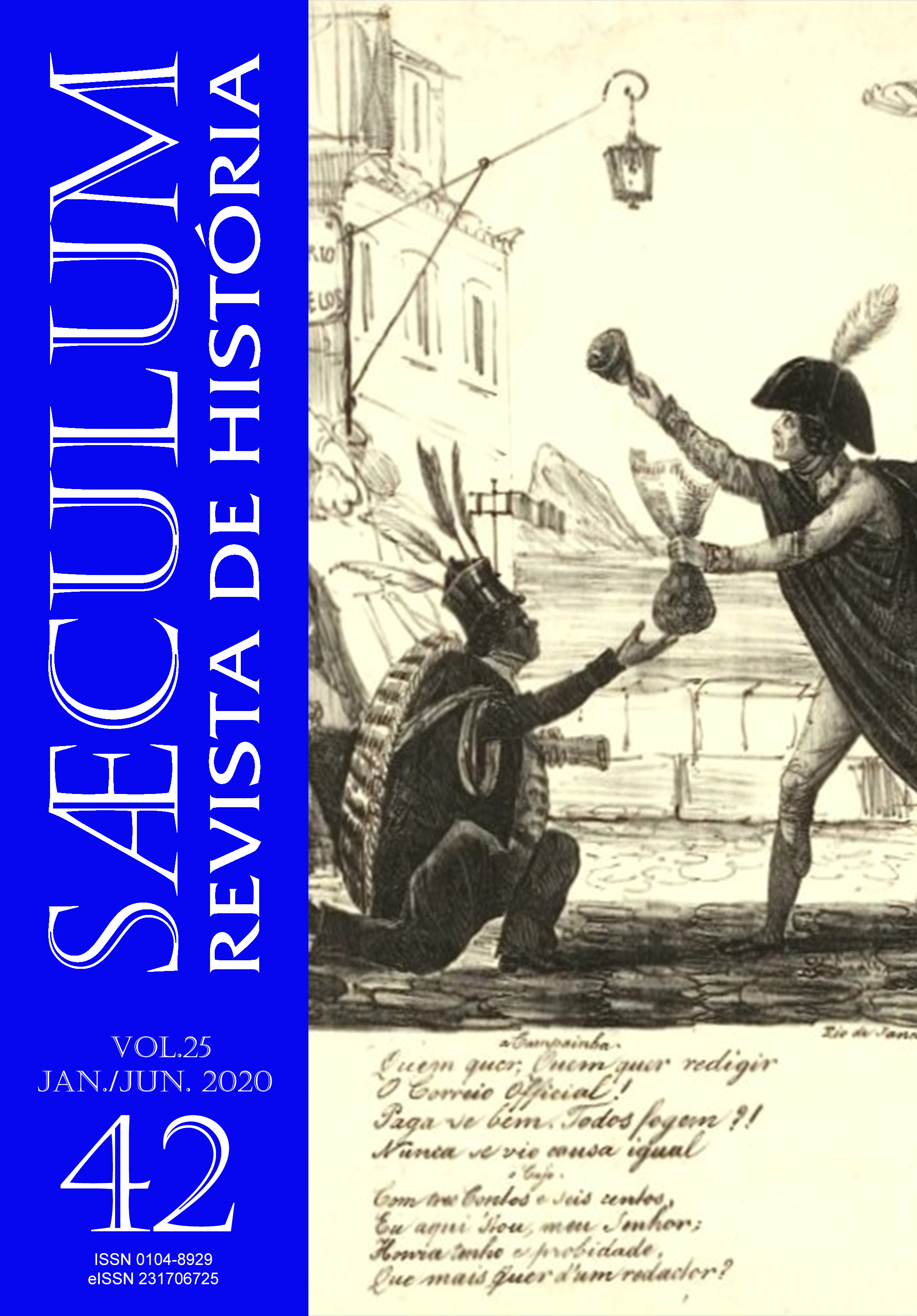Fighting the “exotic plants” of the Nation
the Law of Mayors of Pernambuco of 1836 and the essay of regressive reforms in the Empire
DOI:
https://doi.org/10.22478/ufpb.2317-6725.2020v25n42.50898Keywords:
Brazil Empire, Regency, Political CultureAbstract
In 1836 the Regency was going through a political crisis with the unfolding of the liberal and decentralizing measures implemented since April 7, 1831. A split-off movement began to appear among the moderate liberals who controlled the power in the court and the contestation to those measures. It was the beginning of the Return. In the province of Pernambuco, the regressists were represented by the Cavalcanti oligarchy in alliance with the local restorers from the group of the future regent Araújo Lima. Using the available means of political struggle for the press and the control of the Provincial Assembly, these new Pernambuco regressors managed to approve a provincial law that annulled many of the decentralization measures and gave a new centralized guise to the judicial and police structure of the province, anticipating the changes to come at national level that would only be taken with the Law of Interpretation of the Additional Act of 1840. This article proposes to analyze the process as how this victory of the regressists in Pernambuco occurred and its implications for the local political struggle.
Downloads
References
BASILE, Marcello. O laboratório da Nação: a era regencial (1831 – 1840). In: GRINBERG, Keila; SALLES, Ricardo (org.). O Brasil Imperial, v. II: 1831 – 1870. Rio de Janeiro: Civilização Brasileira, 2009, p. 53-119.
CARVALHO, José Murilo de. Pontos e bordados. Escritos de história política. Belo Horizonte: Editora da UFMG, 2005.
CARVALHO, Marcus J. M. Cavalcantis e Cavalgados: a formação das alianças políticas em Pernambuco, 1817 – 1824. Revista Brasileira de História. v. 18, n. 36. São Paulo: 1998. DOI: https://doi.org/10.1590/S0102-01881998000200014
CAVALCANTI JUNIOR, Manoel Nunes. Cultura política e instituições no Brasil Regencial: a primeira legislatura da Assembleia Provincial de Pernambuco (1835-1836). Binacional Brasil Argentina, Universidade Estadual do Sudoeste da Bahia, v. 9, n. 2, p. 174-198, 2019. DOI: https://doi.org/10.22481/rbba.v8i2.6226
DOLHNIKOFF, Miriam. O Pacto Imperial: origens do federalismo no Brasil. São Paulo: Globo, 2005.
FELDMAN, Ariel. Espaço público e formação do Estado Nacional brasileiro: a atuação política do Padre Carapuceiro. São Paulo, 2012. 351p. Tese. Universidade de São Paulo.
FLORY, Thomas. El juez de paz e el jurado en el Brasil Imperial, 1808-1871. Control social y estabilidad política en el nuevo Estado. México: Fondo de Cultura Económica, 1986.
NASCIMENTO, Luiz do. História da Imprensa de Pernambuco: 1821-1954. Vol. 4. Recife: Imprensa Universitária/UFPE, 1967.
SOUZA, Francisco Belisário Soares de. O sistema eleitoral no Império. Brasília: Senado Federal, 1979.
URUGUAI, Visconde do. Estudos práticos sobre a administração das Províncias no Brasil. Tomo I. Rio de Janeiro: B. L. Garnier, 1865.












